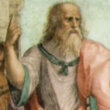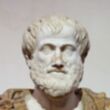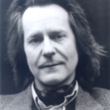The dream of reason: a history of western philosophy from the Greeks to the Renaissance
Description
More Details
Table of Contents
From the Book
Subjects
Excerpt
Similar Titles From NoveList
Similar Authors From NoveList
Published Reviews
Choice Review
Dream of Reason is the first installment in a projected two-volume work covering the entire history of Western philosophy. This volume begins with the ancient Greeks and ends in the 16th century, just before Descartes, where its successor will pick up. The publisher's advertisement claims that this volume is "a stunning successor to [Bertrand] Russell's 1945 classic, A History of Western Philosophy." They are actually right about that, for Gottlieb's history is in some significant ways superior to Russell's. It is more judicious, more scholarly, often more thorough, and while not as funny, nevertheless very engaging. The Dream of Reason is also quite accessible: any literate reader should have little difficulty understanding it. While not a scholarly work in the sense of breaking new ground or engaging in academic disputes, this book displays a great deal of scholarship. Gottlieb (executive editor of The Economist and frequent reviewer of philosophy books for The New York Times) is a serious student of the history of philosophy; his discussions reflect his study of philosophy at Cambridge and University College London. Many literary and scientific allusions and fascinating tidbits of history enliven the text and illuminate its subjects. Every library ought to have this book. J. Hoffman University of North Carolina at Greensboro
Booklist Review
From his gambol through the surviving writings of Greek and Roman philosophers, Economist editor Gottlieb writes that he concluded philosophy was less a definable discipline than a "sharply inquisitive cast of mind." His own inquiry exudes a delightful curiosity, one expressed with dollops of levity, irony, and discovery that holds interest from Pythagoras to Aquinas. Under a motif concerning the reach and limitation of reason, Gottlieb presents the directions that Athenian gadabouts pushed thought; often, as with Zeno and his paradoxes, they sought to expose absurdities lurking within both common sense and pure ratiocination. Along with other odd strains of thought, such as Parmenides\q assertion that birth, death, and motion are illusory, most specific tacks taken in philosophy were shaped, refuted, or ridiculed by successive generations of thinkers, an evolutionlike process Gottlieb enlivens by anecdote and archly put asides. It is this wry, conversant attitude toward the original sources that pulls along readers, whom Gottlieb treats as companions, not as a lecture audience. An excellent prequel to Gottlieb's second volume, planned to span from Descartes to Wittgenstein. --Gilbert Taylor
Publisher's Weekly Review
Histories of philosophy tend either to be prodigious, learned works, like F.C. Copleston's A History of Philosophy, or idiosyncratic tracts of scholarly obfuscation, like Bertrand Russell's A History of Western Philosophy, and they often present their subject through narrow, ideological lenses. Gottlieb's elegant survey brings a breath of fresh air. Executive editor of The Economist, Gottlieb mines primary sources with a remarkably even hand. He demonstrates that, while cosmological questions dominated early philosophy, Plato and Aristotle investigated metaphysical, epistemological and ethical conundrums as well. He shows how the later Hellenistic schools, like the Epicureans and Stoics; medieval thinkers, such as Augustine and Aquinas; and Renaissance philosophers like Machiavelli and Bacon built their systems either on Plato or Aristotle. But Gottlieb's book is not just another plodding survey. His attention to cultural context provides insight into why various thinkers thought as they did about certain matters. Plato wrote his Republic, for example, because he detested the kind of democracy in fashion in Athens, and he wanted to return to the oligarchy of his childhood. Unfortunately, the book suffers from a distorted perspective, covering almost 1,000 years of history, from late antiquity to the Renaissance, in just under 100 pages, while giving more than that to early Greek philosophy, most of which consists of fragmentary sources. Thus, Hobbes and Machiavelli who, more than Democritus or Empedocles, deserve their own chapters are allotted only a few brief paragraphs. Gottlieb also engages in some misreading: Kant's theory of self-consciousness, for instance, leads not to relativism but to absolutism. Nonetheless, this eloquent book offers a lively chronicle of the evolution of Western philosophy. (Dec.) Forecast: This excellent volume will find a place in course curricula, and it will appeal to those who, no longer students, wish they had taken Philosophy 101, as well as those who did, and would like a refresher course. (c) Copyright PWxyz, LLC. All rights reserved
Library Journal Review
Gottlieb goes beyond his day job (he's executive editor of the Economist) to offer a wide-ranging account of Western thought that the publisher is comparing to Bertrand Russell's venerable A History of Western Philosophy. (c) Copyright 2010. Library Journals LLC, a wholly owned subsidiary of Media Source, Inc. No redistribution permitted.
Kirkus Book Review
A superbly literate, wide-ranging survey of Western thought over two and a half millennia. Gottlieb, executive editor of The Economist, is resolutely and refreshingly nonacademic; he announces at the outset that his aim is to approach the story of philosophy as a journalist ought to: to rely only on primary sources, wherever they still existed; to question everything that had become conventional wisdom; and, above all, to try and explain it all as clearly as I could. The result is an examination of philosophy as a species of news that stays newsworthy, and that makes useful distinctions not often voiced in standard surveys. (Why, Gottlieb asks, lump Socrates, Plato, and Aristotle together? The three were very different thinkers, and very different people.) For Gottlieb, the grand theme of ancient philosophy is its attempt to discover the true nature of things; his pre-Socratics are a wonderfully able, if sometimes eccentric, group of eminently practical thinkers who arrived at answers that, in outline, still hold true today, while his Plato is a far less dreamy figure than he has been made out to beone whose ideal Republic, ruled by a philosopher-king, is a self-evident fiction, a subject for reflection and argument rather than a realizable ideal. Thank goodness: only a mad scientist could love the Republics eugenic ideals, and in any event, Gottlieb writes, given that most actual philosophers are not particularly virtuous or else are totally useless, it is wholly unlikely that such a government could ever rise. Gottlieb charts the transformation of philosophical thought in the Middle Ages not as a means of discovering the truth about the world and humankind, but as above all a guide to life and a source of comfort. He gives medieval philosophy a scant hundred pages, but given its comparative aridity measured against Greek and Roman contributions, that seems about right. Anecdotal and sometimes breezy, yet carefully argued, Gottliebs narrative rescues philosophy from the dusty textbooks.
Booklist Reviews
From his gambol through the surviving writings of Greek and Roman philosophers, Economist editor Gottlieb writes that he concluded philosophy was less a definable discipline than a "sharply inquisitive cast of mind." His own inquiry exudes a delightful curiosity, one expressed with dollops of levity, irony, and discovery that holds interest from Pythagoras to Aquinas. Under a motif concerning the reach and limitation of reason, Gottlieb presents the directions that Athenian gadabouts pushed thought; often, as with Zeno and his paradoxes, they sought to expose absurdities lurking within both common sense and pure ratiocination. Along with other odd strains of thought, such as Parmenides\q assertion that birth, death, and motion are illusory, most specific tacks taken in philosophy were shaped, refuted, or ridiculed by successive generations of thinkers, an evolutionlike process Gottlieb enlivens by anecdote and archly put asides. It is this wry, conversant attitude toward the original sources that pulls along readers, whom Gottlieb treats as companions, not as a lecture audience. An excellent prequel to Gottlieb's second volume, planned to span from Descartes to Wittgenstein. --Gilbert Taylor Copyright 2000 Booklist Reviews
Library Journal Reviews
Gottlieb goes beyond his day job (he's executive editor of the Economist) to offer a wide-ranging account of Western thought that the publisher is comparing to Bertrand Russell's venerable A History of Western Philosophy. Copyright 2000 Cahners Business Information.
Library Journal Reviews
This is a most interesting book, mainly because its author is not a "professional" philosopher but is instead executive editor of The Economist. As a result, he approaches his subject somewhat differently than would a formally trained philosopher. In his introduction, Gottlieb rightly points out that "the history of philosophy is more the history of a sharply inquisitive cast of mind than the history of a sharply defined discipline." He then develops the thesis that, in essence, philosophy constantly puts itself out of business: that is, as philosophy's critical approach is picked up by other intellectual disciplines, philosophical enquiry moves on to another area of intellectual endeavor (e.g., natural philosophy becomes science). The text is divided into three parts, which cover the Greek philosophers prior to Socrates; Socrates, Plato, and Aristotle; and the period ranging from the Epicureans to Descartes. Unambiguous and fresh, this excellent work should find a place in all academic or public libraries; one hopes there might be a second volume to bring the history up to the present. Terry Skeats, John Bassett Memorial Lib., Bishop's Univ., Lennoxville, Quebec Copyright 2001 Cahners Business Information.
Publishers Weekly Reviews
Histories of philosophy tend either to be prodigious, learned works, like F.C. Copleston's A History of Philosophy, or idiosyncratic tracts of scholarly obfuscation, like Bertrand Russell's A History of Western Philosophy, and they often present their subject through narrow, ideological lenses. Gottlieb's elegant survey brings a breath of fresh air. Executive editor of The Economist, Gottlieb mines primary sources with a remarkably even hand. He demonstrates that, while cosmological questions dominated early philosophy, Plato and Aristotle investigated metaphysical, epistemological and ethical conundrums as well. He shows how the later Hellenistic schools, like the Epicureans and Stoics; medieval thinkers, such as Augustine and Aquinas; and Renaissance philosophers like Machiavelli and Bacon built their systems either on Plato or Aristotle. But Gottlieb's book is not just another plodding survey. His attention to cultural context provides insight into why various thinkers thought as they did about certain matters. Plato wrote his Republic, for example, because he detested the kind of democracy in fashion in Athens, and he wanted to return to the oligarchy of his childhood. Unfortunately, the book suffers from a distorted perspective, covering almost 1,000 years of history, from late antiquity to the Renaissance, in just under 100 pages, while giving more than that to early Greek philosophy, most of which consists of fragmentary sources. Thus, Hobbes and Machiavelli who, more than Democritus or Empedocles, deserve their own chapters are allotted only a few brief paragraphs. Gottlieb also engages in some misreading: Kant's theory of self-consciousness, for instance, leads not to relativism but to absolutism. Nonetheless, this eloquent book offers a lively chronicle of the evolution of Western philosophy. (Dec.) Forecast: This excellent volume will find a place in course curricula, and it will appeal to those who, no longer students, wish they had taken Philosophy 101, as well as those who did, and would like a refresher course. Copyright 2000 Cahners Business Information.
PW Annex Reviews
Histories of philosophy tend either to be prodigious, learned works, like F.C. Copleston's A History of Philosophy, or idiosyncratic tracts of scholarly obfuscation, like Bertrand Russell's A History of Western Philosophy, and they often present their subject through narrow, ideological lenses. Gottlieb's elegant survey brings a breath of fresh air. Executive editor of The Economist, Gottlieb mines primary sources with a remarkably even hand. He demonstrates that, while cosmological questions dominated early philosophy, Plato and Aristotle investigated metaphysical, epistemological and ethical conundrums as well. He shows how the later Hellenistic schools, like the Epicureans and Stoics; medieval thinkers, such as Augustine and Aquinas; and Renaissance philosophers, including Machiavelli and Bacon, built their systems either on Plato or Aristotle. But Gottlieb's book is not just another plodding survey. His attention to cultural context provides insight into why various thinkers thought as they did about certain matters. Plato wrote his Republic, for example, because he detested the kind of democracy in fashion in Athens, and he wanted to return to the oligarchy of his childhood. Unfortunately, the book suffers from a distorted perspective, covering almost 1,000 years of history, from late antiquity to the Renaissance, in just under 100 pages, while giving more than that to early Greek philosophy, most of which consists of fragmentary sources. Thus, Hobbes and Machiavelli, who deserve their own chapters more than do Democritus or Empedocles, are allotted only a few brief paragraphs. Gottlieb also engages in some debatable readings: many find that Kant's theory of self-consciousness, for instance, leads not to relativism but to absolutism. Nonetheless, this eloquent book offers a lively chronicle of the evolution of Western philosophy. (Nov.) Copyright 2003 Reed Business Information.


































